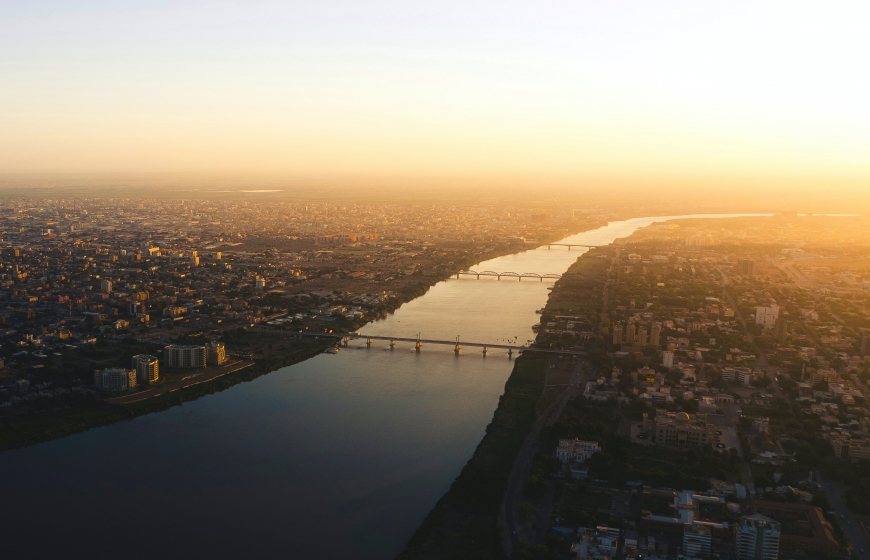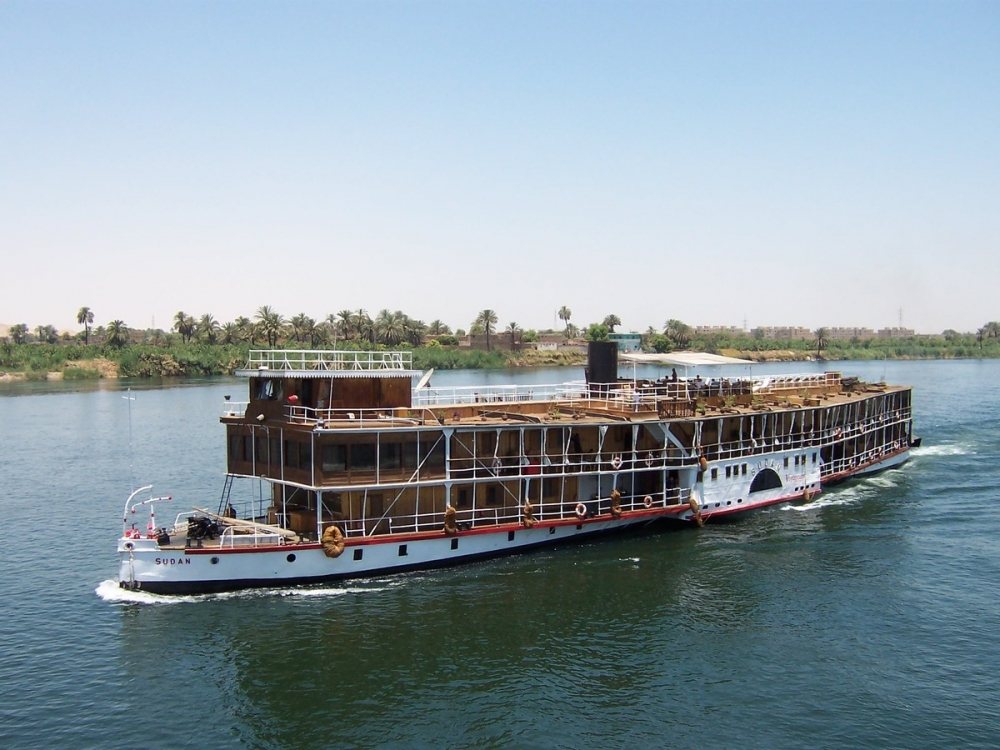News
13 October 2021Water challenges and opportunities in South Sudan: Call for engagement of the Dutch water sector

South Sudan, one of the youngest nations of the world, saw its independence in 2011, marking an end to a long civil war. However, two years later, violent conflict broke out again. After the civil war, a peace agreement was signed in 2018. Today, the country still faces an uncertain security situation and an unstable economy.
This does not mean that there are no concrete (business) opportunities for the Dutch water sector in South Sudan. The Dutch water sector could potentially play an important role in providing solutions to prevailing problems, with its water management expertise, and state-of-the-art technology with regards to water quality management. That is why the Netherlands Water Partnership (NWP), in the framework of the Water Support Programme, is committed to exploring the possible entryways of the Dutch water sector to become (more) involved in South-Sudan and thereby realising more water impact abroad.
South Sudan is a focus country of the Government of The Netherlands (GoN)' Water Support Programme. The Programme's priority is to further develop the water sector in South Sudan and to stimulate cooperation with the Dutch private sector. At the dawn of independence of South Sudan, the Netherlands set out an ambitious plan to support the country to operationalise the articulations in its water policy and draft water bill by establishing two IWRM projects: Water for Lakes and Water for Eastern Equatoria. These two activities included lessons from previous Dutch activities implemented in South(ern) Sudan. Both projects concluded in October 2019 with remarkable results and clear lessons for future interventions.
The overall water and sanitation objectives of the Government of the Republic of South Sudan (GRSS), as stipulated by its Water Policy of 2007, include improving access to safe water supply and sanitation facilities and promoting hygiene education for all people living in rural areas. In addition, the government is committed to ensuring that the rapidly growing urban population benefits from access to safe, affordable, and reliable water and sanitation services and promotes efficient development and management of these services. Furthermore, South Sudan's national water management agenda includes integrated water resources management, wetlands ecosystems conservation, water for agriculture, and water for animal production.
Some of the current priorities on both sides are identified, starting with Flood Prevention & Droughts, followed by Water Resources Management; Agriculture & Food Security, and Protection of the Environment.
Flood prevention & droughts
South Sudan's annual rainfall may be high, but it is concentrated at certain parts of the year. This causes both flooding and droughts. It has several rivers that are permanently water-bearing, some of which have potential for riverine development. Water management has been high on the political agenda since South Sudan became independent.
Several parts of the country, such as Bor, Jonglei State, the Greater Pibor Administrative Area, Twic East county and Duk county, face regular (annual) floodings, disrupting the lives and livelihoods of hundreds of thousands of people. Especially the years of 2019 and 2020 were particularly bad in terms of extreme and unprecedented floodings. The Netherlands Embassy does carry out an orientation on how water management may address the effects of Climate Change with specific attention for floods in the Bor-Jonglei state.
Water Resources Management/water management and drinking water, sanitation, and hygiene
South Sudan has some of the lowest rates of access to water and sanitation services. In both rural and urban areas, unserved populations depend on surface water sources such as rivers and streams, water pools and rain harvesting for drinking with hardly any purification. Water and sanitation related diseases are a major public health concern.
These problems call for not only provision of safe drinking water sources, but also for developing an institutional structure for the management of water facilities and active private sector participation. They can provide supplies and develop market oriented and sustainable water supply and sanitation solutions. Dutch private sector can play a crucial role in this process.
Furthermore, the seasonality of rainfall offers ample opportunities through introduction of a range of measures, varying from construction of water facilities for productive use to flood control works. The wet season can be used better by developing storage facilities that divert water to the right places in the dry season and increase soil moisture. In drier areas, rainwater harvesting techniques can provide opportunities to reduce risks.
As a pioneer in integrated water resources management in South Sudan, the Netherlands can share its knowledge and models on WASH/IWRM.
Agriculture & food security
Decades of war and conflict have left South Sudan food insecure and dependent on food imports. About 80% of its population lives in rural areas and relies on agriculture for their livelihoods, but years of war have destroyed farming skills and traditions. Agriculture therefore needs to be largely rebuilt from scratch. External shocks like floods and droughts occur regularly in South Sudan and aggravate food insecurity. The main challenge is to translate South Sudan's abundant resources and workforce potential into better human and development outcomes. In this connection, agriculture is sometimes seen as South Sudan's 'green gold'.
The greatest potential for initial new growth is likely to come from the small scale private, predominantly family agriculture and livestock activities. This sector can be enhanced through addressing human capacity (economic literacy and numeracy) and modern farming and livestock production methods. Complementary to this, improved access to inputs, tools, technology, equipment, and markets will make a difference. The Dutch water sector might help by offering an integrated approach to water and agrifood, combining techniques and information on soil fertility, soil moisture, water buffering capacity and irrigation.

Protection of the environment
The GRSS' water management agenda also includes protection of the environment, in particular wetland ecosystems (with the Sudd as the largest), decreased infiltration because of forest clearing, and soil degradation due to expanding agriculture. Water quality is a concern in oil extraction areas.
Here it might be worthwhile to share knowledge from the cross-sectoral integration between spatial planning, nature conservation and water policy that the Netherlands has applied in its national context. Furthermore, Nature Based Solutions, which the Netherlands has great expertise in, might be well placed here.
Express your interest in involvement in the South Sudanese water sector
This call is a way for NWP to take stock of the Dutch water sector organisations that are interested to become active in South Sudan, or possibly already are, and what their (thematic) areas of interest in the country are. Based on this information, we can tailor our offer more precisely for the upcoming South Sudan Platform Meeting in November 2021.
Are you a Dutch water organisation active in South Sudan, and interested to keep up to date with current opportunities and developments in South Sudan? Or are you keen to become active in South Sudan and would you like to know more about the possibilities for Dutch Water Sector involvement in South Sudan to help solve its pressing water issues?
Please contact Wim Klaassen, Strategic Advisor Water on South Sudan, w.klaassen@nwp.nl, or Lisanne Evenhuis, Project Officer Africa/Middle East, l.evenhuis@nwp.nl.